Receiver hitches are an essential component of any vehicle that needs to tow a trailer or haul cargo.
They provide a secure connection point between the vehicle and the trailer, allowing you to safely transport your cargo on the road.
However, without the right accessories, your hitch may not be able to perform at its best.
In this blog post, we will discuss the different types of receiver hitch accessories available and how to choose the right ones for your specific towing needs.
We can separate receiver hitch accessories into two groups: the essentials and the other/additional ones.
Essential Receiver Hitch Accessories
- Ball mount
- Hitch pin and clip
- Hitch lock
- Hitch cover
- Hitch extension
- Hitch ball
- Towing mirrors
- Weight distribution hitch
- Sway control hitch
Other Receiver Hitch Accessories
- Trailer hitch step
- Trailer hitch light
- Bike rack
- Cargo carrier
- Hitch-mounted snow plow
- Hitch-mounted winch
- Hitch-mounted spare tire carrier
- Hitch-mounted cargo basket
Essential Receiver Hitch Accessories
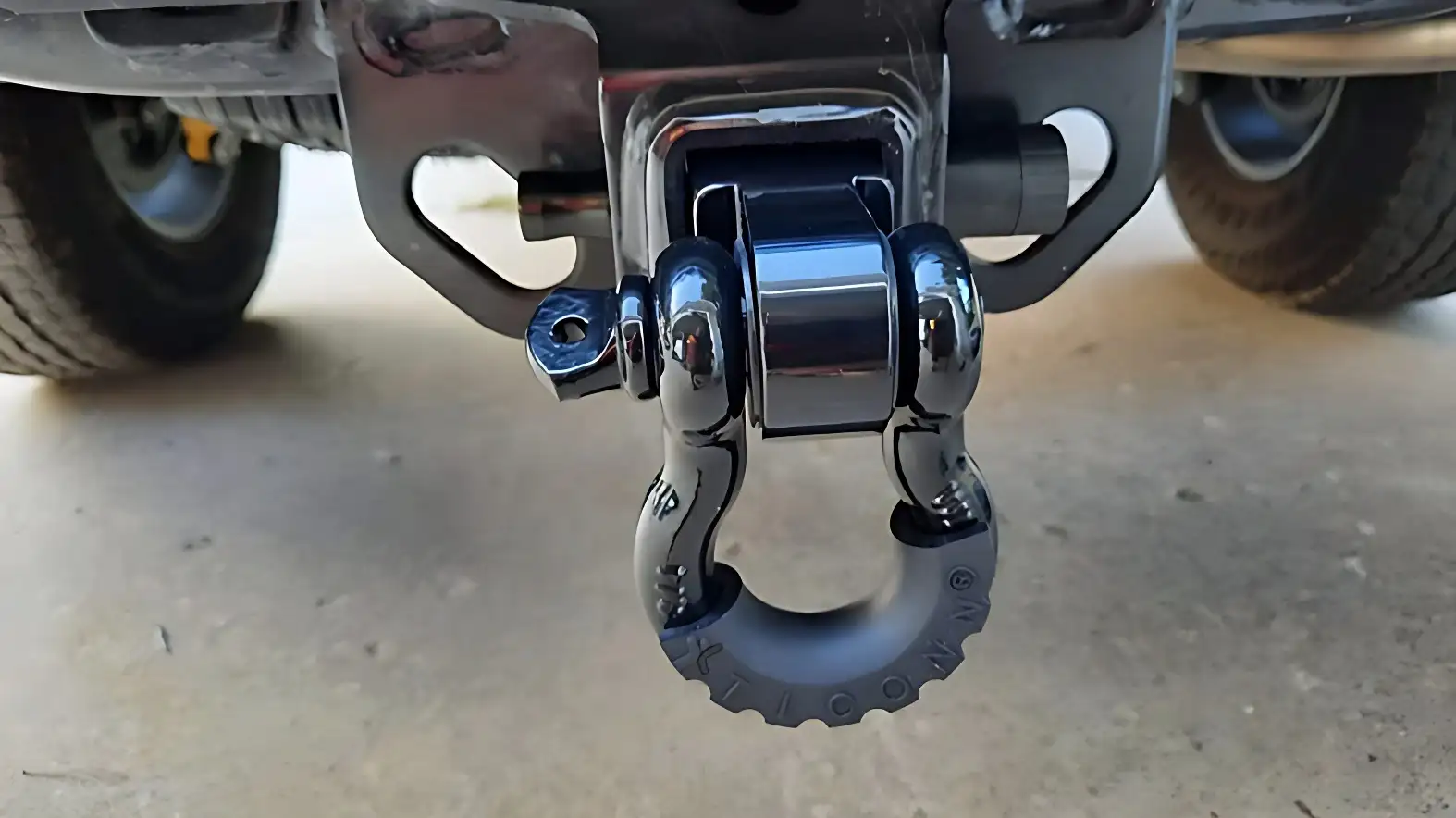
Ball Mount:
Ball mounts are an essential accessory for any vehicle that needs to tow a trailer. They attach to the receiver hitch and hold a ball that the trailer attaches to.
Ball mounts come in different sizes and weight ratings, so it is important to choose the right one for your specific towing needs.
There are three main types of ball mounts: fixed, adjustable, and drop. Fixed ball mounts have a set height and can only be used for a specific towing setup.
Adjustable ball mounts have a range of heights, which allows them to be used for multiple towing setups.
Drop ball mounts have a lower height than the receiver hitch and can be used to level the trailer.
When choosing a ball mount, it is important to consider the weight of the trailer and the amount of drop or rise needed to level the trailer.
It is also important to make sure the ball mount has the right weight rating for the trailer.
When installing a ball mount, it is important to make sure it is properly secured to the receiver hitch using a hitch pin and clip.
It is also important to make sure the ball mount is level to prevent any damage to the vehicle or the trailer.
Hitch Pin And Clip:
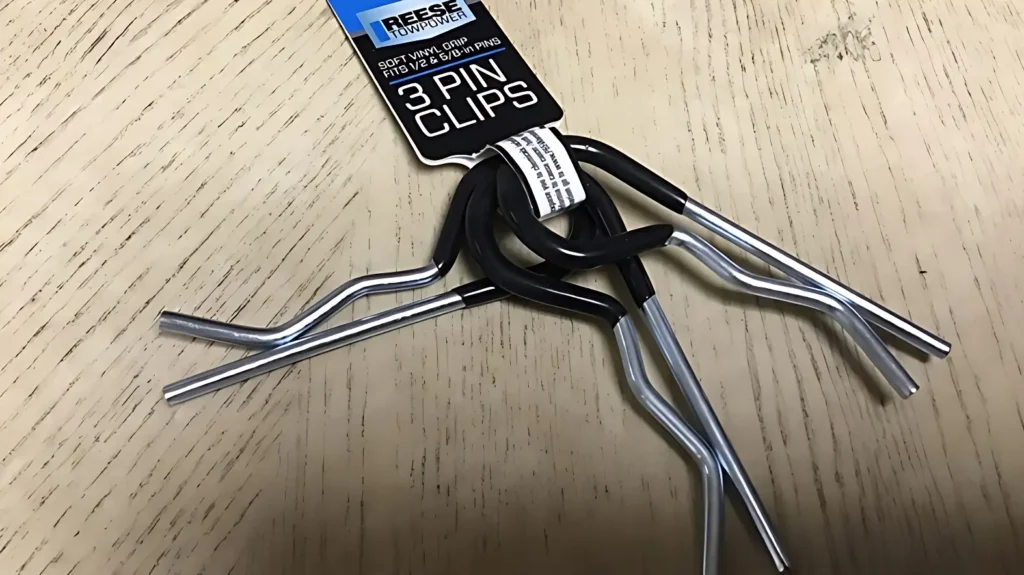
Hitch pin and clip are a simple yet essential accessory for any receiver hitch.
They are used to secure the ball mount to the receiver hitch and prevent it from coming loose while towing.
Hitch pins come in different styles such as the standard pin, locking pin and also quick release pins.
Locking hitch pins are designed to provide extra security by having a locking mechanism, which prevents anyone from removing the ball mount without the key.
Quick release pins are designed for easy installation and removal of the ball mount, making it more convenient to change between different towing setups.
The clip is a small metal or plastic piece that attaches to the hitch pin and keeps it from sliding out of the receiver hitch.
They come in different sizes and styles, and it’s important to choose the right one that fits the hitch pin that you are using.
When installing the hitch pin and clip, it is important to ensure that they are properly seated and tightened to prevent any movement while towing.
It is also important to regularly check the tightness of the hitch pin and clip, especially before towing a heavy load.
Hitch Lock:
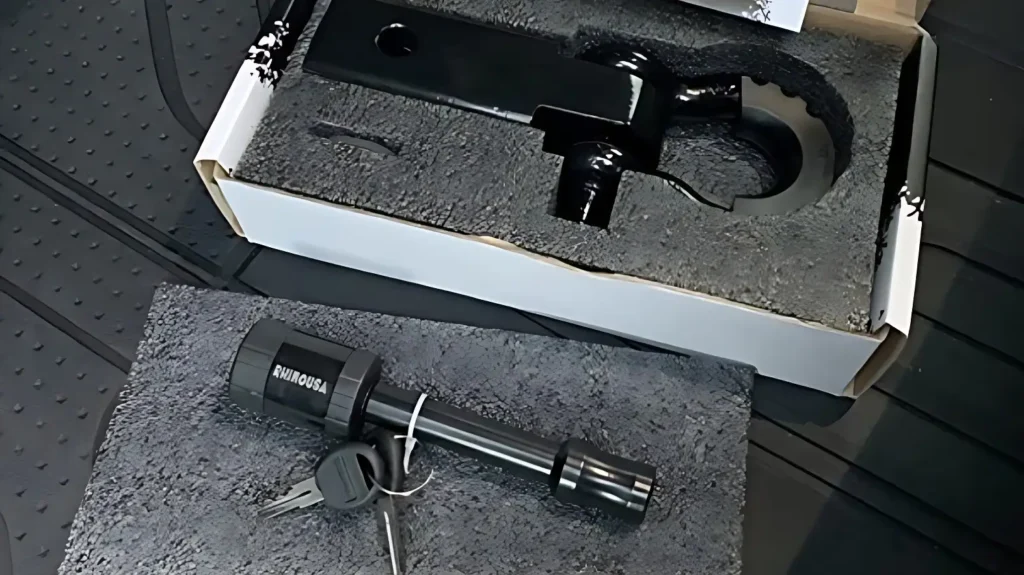
A hitch lock is an essential accessory for any vehicle that needs to tow a trailer or haul cargo.
It attaches to the receiver hitch and prevents someone from removing the ball mount or other accessories, making it an important tool for securing your trailer and maintaining the safety of your towing setup.
Hitch locks come in a variety of designs, but they all serve the same purpose: to secure the ball mount to the receiver hitch and prevent theft or tampering.
Some hitch locks use a keyed mechanism, while others use a combination lock or other type of secure locking mechanism.
When choosing a hitch lock, it’s important to consider the specific needs of your towing setup.
If you’ll be towing in a public place or leaving your vehicle unattended for an extended period of time, a keyed hitch lock may be the best option for added security.
If you’re looking for a more convenient option, a combination lock may be a better choice.
In addition to providing security, hitch locks can also help protect your vehicle and trailer from damage.
.Without a hitch lock, the ball mount and other accessories can shift or become loose while you’re towing, which can cause serious damage to your vehicle and the trailer.
It’s important to note that, while a hitch lock can provide added security, it should not be considered a substitute for other security measures such as locking your vehicle or keeping your trailer in a secure location.
It’s always recommended to use a hitch lock in conjunction with other security measures to ensure the safety of your towing setup.
Hitch Cover:
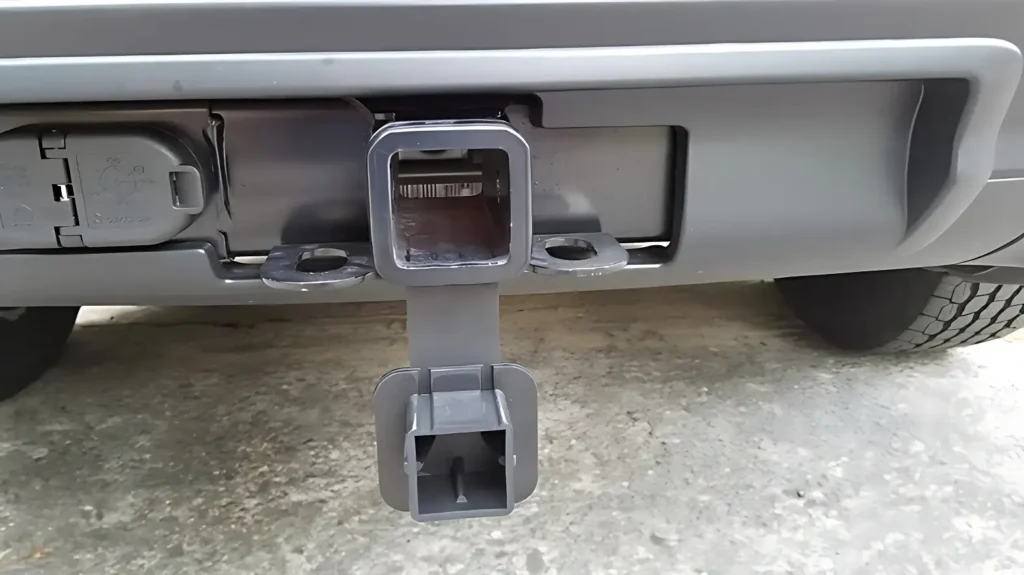
A hitch cover is a small but important accessory for any vehicle that has a receiver hitch.
It attaches to the receiver hitch and serves as a protective cover for the hitch ball and the receiver hitch itself.
Hitch covers come in a variety of designs, styles and materials, and can also be used for personalization and customization of the vehicle.
Hitch covers are typically made of durable plastic, rubber or metal materials, designed to withstand the elements and protect the hitch ball and receiver hitch from dirt, debris, rust, and other forms of damage.
Some hitch covers also come with built-in locking mechanisms to deter theft.
One of the most popular types of hitch covers is the logo hitch cover. These hitch covers feature the logo of a sports team, a college or a brand, and are a great way to show support for your favorite team or brand.
They are also a good way to personalize your vehicle, and make it stand out on the road.
Another type of hitch cover is the decorative hitch cover.
These hitch covers come in a variety of designs, from patriotic themes to nature scenes, and are a great way to add a touch of personality to your vehicle.
Some of them even come with LED lights that light up in the dark. It’s important to choose the right hitch cover for your vehicle.
You’ll want to make sure the cover you choose fits your hitch properly and is compatible with the weight and size of your towing setup.
It’s also important to choose a hitch cover that is durable and can withstand the elements.
Hitch Extension:
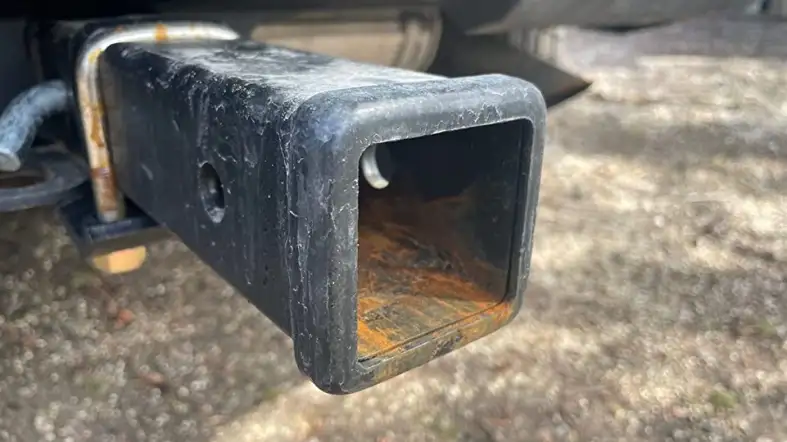
A hitch extension is a device that attaches to the receiver hitch and extends it out from the vehicle.
This can be useful if you need to tow a larger trailer or if the trailer is not level with the vehicle.
Hitch extensions come in different lengths and can be used to add extra clearance between the back of the vehicle and the trailer.
Hitch extensions are especially helpful when you need to tow a trailer with a low ground clearance, such as a boat or a low-lying utility trailer.
They can also be used when you need to tow a trailer with a larger overhang, such as a horse trailer or a travel trailer.
By extending the hitch, you can ensure that the trailer is level with the vehicle, which can improve handling and stability while towing.
When choosing a hitch extension, it is important to consider the weight rating and the length.
The weight rating should match or exceed the weight of the trailer you will be towing, and the length should be sufficient to level the trailer with the vehicle.
It’s also important to make sure that the hitch extension is compatible with your specific receiver hitch.
Hitch extensions can be made from different materials, such as steel or aluminum, and some are powder coated to resist rust and corrosion.
It’s also important to ensure that the hitch extension is properly installed with the use of proper hardware and securely attached to the receiver hitch.
Hitch Ball:
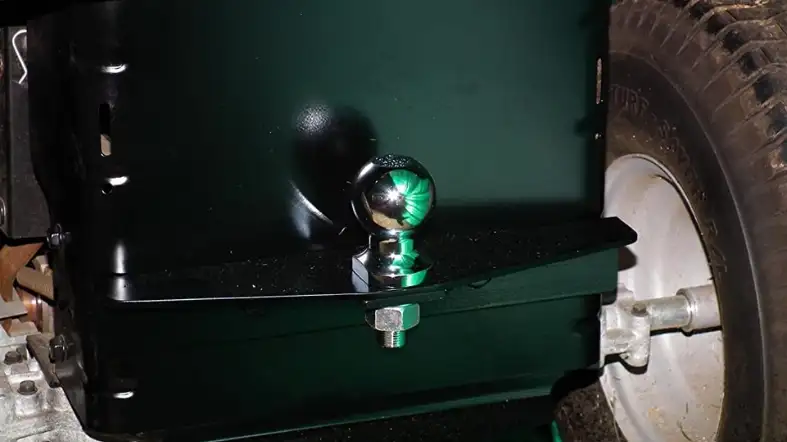
A hitch ball is an essential receiver hitch accessory that is used to connect a trailer to a vehicle.
It attaches to the ball mount, which is a device that attaches to the receiver hitch, and allows the trailer to be towed.
Hitch balls come in different sizes and weight ratings.
The size of the hitch ball is determined by the diameter of the ball itself, while the weight rating is determined by the maximum weight capacity of the ball.
It is important to choose the right hitch ball for your specific towing needs, as using a ball that is too small or has a weight rating that is too low can be dangerous and cause damage to your vehicle and trailer.
The most common sizes of hitch balls are 1 7/8 inches, 2 inches, and 2 5/16 inches, and they come in a variety of weight ratings, such as 2,000 pounds, 3,500 pounds, and 10,000 pounds.
The size and weight rating of the hitch ball will depend on the weight and size of the trailer you will be towing.
When purchasing a hitch ball, it is important to check the weight capacity of the ball and compare it with the weight of the trailer.
It is also important to make sure the ball is the right size for the coupler of the trailer.
It’s also important to note that the ball mount and hitch ball should be the same size, if the ball mount is 2 inches, the hitch ball should be 2 inches as well.
Properly maintaining the hitch ball is also important for safety and longevity of the accessory.
The hitch ball should be regularly inspected for rust or damage and should be lubricated to prevent rust and wear.
Towing Mirrors:
Towing mirrors are an essential accessory for anyone who frequently tows a trailer or large loads behind their vehicle.
These mirrors attach to the side mirrors of your vehicle and extend out to give you a better view of the trailer, allowing you to safely navigate tight spaces and highway traffic.
When towing a trailer, it is important to have a clear view of the entire vehicle combination, including the back of the trailer.
Regular side mirrors on a vehicle do not provide enough visibility, making it difficult to safely change lanes, back up, or make turns.
Towing mirrors are designed to extend your view so you can easily see what’s behind you and make safer driving decisions.
There are different types of towing mirrors available on the market. Some are manual, meaning you have to manually adjust them to get the right view.
Others are powered, which can be adjusted using buttons on the mirror or on the door panel of your vehicle.
Some towing mirrors also come with cameras, which can be helpful to see the actual trailer or other blind spot areas.
When choosing towing mirrors, it is important to consider the size and weight of your trailer, as well as the make and model of your vehicle.
Some mirrors are designed to fit specific vehicles, while others are universal and can be adjusted to fit a variety of vehicles.
It’s also important to consider the durability of the mirrors, and to make sure they are made from sturdy materials that can withstand the elements.
In addition to providing better visibility while towing, towing mirrors can also enhance the overall appearance of your vehicle.
They come in a variety of designs and styles, so you can choose the one that best matches your vehicle.
Other Receiver Hitch Accessories
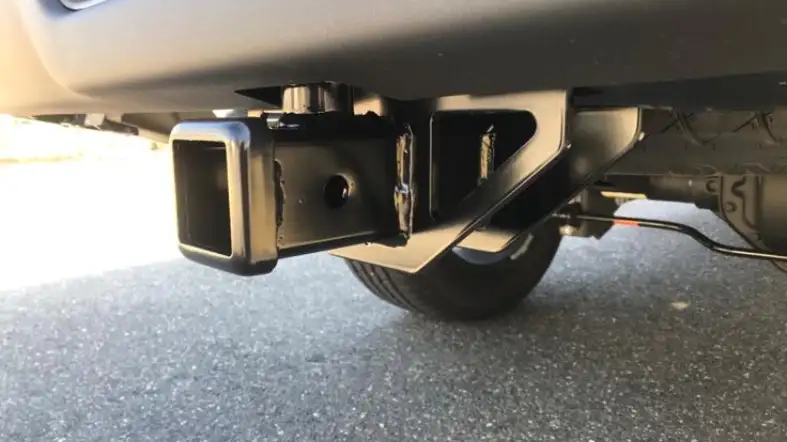
Trailer hitch step
A Trailer hitch step is a device that attaches to the receiver hitch and provides a step for easy access to the bed of the truck.
It is a convenient and practical accessory for anyone who frequently loads or unloads cargo from the bed of their truck.
The step attaches to the receiver hitch and can be easily installed or removed as needed.
It is available in different styles and sizes to fit a variety of vehicles. Some popular styles include foldable, retractable, and telescoping steps.
The foldable steps can be easily stored when not in use, whereas the retractable steps can be pulled out when needed and pushed back when not in use.
The telescoping steps can be adjusted to different lengths depending on the height of the truck bed.
The step is typically constructed from durable materials such as aluminum or steel, making it able to withstand heavy use and harsh weather conditions.
It is also coated with a rust-resistant finish to ensure longevity.
In addition to providing easy access to the bed of the truck, a trailer hitch step can also improve safety by reducing the risk of falls or injuries while loading or unloading cargo.
It can also be used as a step to access the roof of the truck for tasks such as cleaning or installing a roof rack.
Trailer hitch light
Trailer hitch lights, also known as hitch-mounted lights, are an essential accessory for any vehicle that tows a trailer.
These lights attach to the receiver hitch and provide additional lighting when towing at night or in low-light conditions.
There are different types of trailer hitch lights available, including brake lights, turn signals, and backup lights.
Some trailer hitch lights even come with multiple functions, such as brake lights, turn signals, and running lights all in one.
Brake lights are important for safety as it alerts other drivers when the vehicle is slowing down or stopping.
Turn signals are helpful when turning, changing lanes or merging on the highway. Backup lights are useful when reversing the vehicle and trailor.
When choosing a trailer hitch light, it’s important to consider the compatibility with your vehicle, the type of trailer you’ll be towing, and the type of lighting you need.
It’s also important to ensure that the light is of a high quality and meets all the safety standards and regulations.
Installation of trailer hitch lights is easy, it could be done by the owner with the help of the instruction manual that comes with the light.
It is important to make sure the lights are securely attached to the receiver hitch and properly wired to the vehicle’s electrical system.
Bike rack
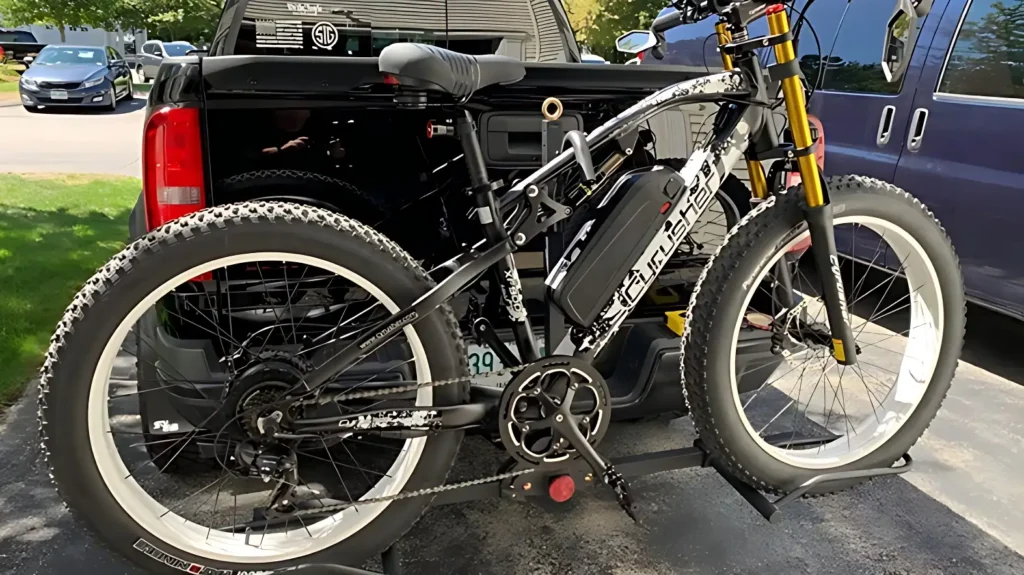
A bike rack is an accessory that attaches to the receiver hitch of a vehicle and allows you to transport one or more bicycles on the back of your vehicle.
There are a variety of different types of bike racks available, each with their own unique features and benefits.
One popular type of bike rack is the trunk-mount bike rack. These racks attach to the trunk or rear hatch of a vehicle using straps or a locking mechanism.
They are typically the most affordable option and are easy to install and remove.
However, they can only accommodate a limited number of bikes and can sometimes block the rear view of the vehicle.
Another popular type of bike rack is the hitch-mount bike rack.
These racks attach to the receiver hitch of a vehicle and can accommodate more bikes than trunk-mount racks.
They also keep the bikes away from the vehicle, which can help prevent damage to the car or bike.
Hitch-mount bike racks come in different designs such as platform, hanging, and tilting.
Platform racks have a tray for each bike to sit on, hanging racks have individual cradles for each bike’s frame, and tilting racks allow for easy access to the rear of the vehicle.
Roof-mount bike racks are also available, these racks attach to the roof of the vehicle using roof rack crossbars.
They are typically the most expensive option but they offer the most secure way to transport bikes and do not block the rear view of the vehicle.
When choosing a bike rack, it is important to consider the number of bikes you need to transport, the weight and size of the bikes, and the type of vehicle you have.
It is also important to ensure that the rack is compatible with your vehicle’s receiver hitch and that it has been tested and certified for safety.
Cargo carrier
A cargo carrier is an essential accessory for any vehicle that needs to transport additional cargo.
It attaches to the receiver hitch on the back of your vehicle, providing a platform on which to haul items such as suitcases, camping gear, and other large items that may not fit inside your vehicle.
Cargo carriers come in different styles and sizes to accommodate different needs. Some common types of cargo carriers include:
Foldable cargo carriers:
These carriers can be folded up when not in use, making them a convenient option for those who need to use the carrier only occasionally.
Hitch-mounted cargo baskets:
These carriers are designed to be attached to the receiver hitch, and they feature a basket-like design that keeps cargo securely in place. They are ideal for carrying large, bulky items.
Roof-mounted cargo carriers:
These carriers attach to the roof of your vehicle, providing additional storage space for longer trips or larger items.
Enclosed cargo carriers:
These carriers are completely enclosed, providing additional protection for your cargo from the elements.
Expandable cargo carriers:
These carriers can be expanded to accommodate more cargo, making them a versatile option for those who need to transport a variety of items.
When choosing a cargo carrier, it is important to consider the weight and size of the items you need to transport, as well as the weight capacity and size of the carrier.
It is also important to consider the type of vehicle you have and the type of hitch you have.
In addition to the carrier itself, it is also important to have the proper hitch and locking mechanism to ensure that the carrier is securely attached to your vehicle.
Hitch-Mounted Snow Plow
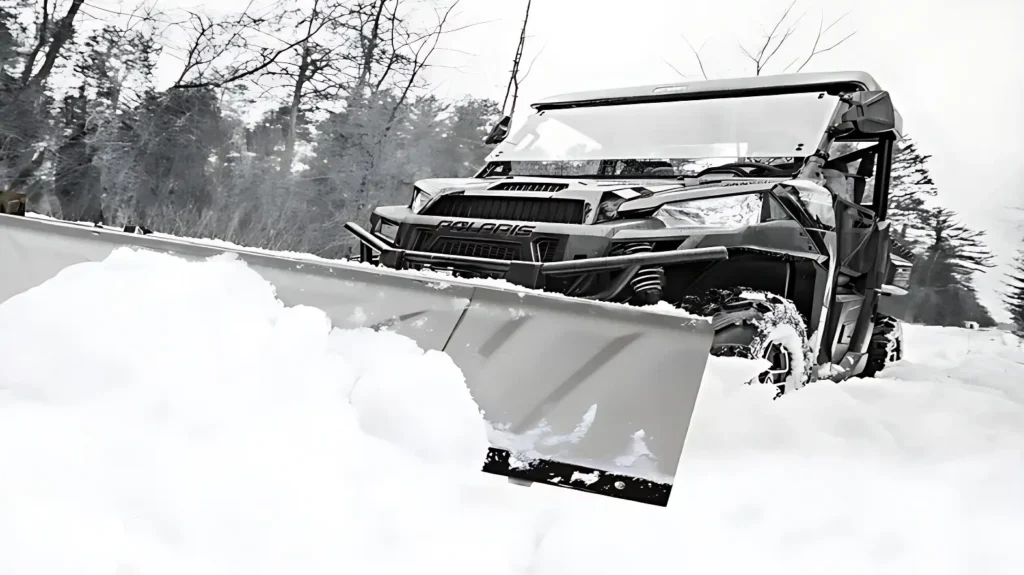
A hitch-mounted snow plow is a device that attaches to the receiver hitch of your vehicle, allowing you to plow snow with your vehicle.
This can be a convenient and efficient way to clear snow from your driveway or property, without the need for a separate plow truck or equipment.
There are different sizes and styles of hitch-mounted snow plows available, so it’s important to choose one that is compatible with your vehicle and meets your specific needs.
Some plows are manual and require manual adjustments, while others are electric and can be controlled by a remote.
When using a hitch-mounted snow plow, it’s important to follow all safety precautions and manufacturer’s instructions.
This includes ensuring that the plow is properly attached to the receiver hitch, and adjusting the plow angle as needed.
It’s also important to ensure that the plow is not too heavy for your vehicle’s towing capacity, as this can cause damage to your vehicle.
Hitch-mounted snow plows can be a valuable tool for clearing snow, but it’s important to use them properly and safely.
With the right hitch-mounted snow plow and the proper use, you can make quick work of clearing snow from your driveway or property.
Hitch-mounted winch
A hitch-mounted winch is an accessory that attaches to the receiver hitch of a vehicle and allows you to pull heavy loads with your vehicle.
This can be useful for a variety of tasks such as pulling a stuck vehicle out of mud or sand, moving large objects, or even rescuing other vehicles.
Hitch-mounted winches are available in different weight capacities, typically ranging from 4,000 to 20,000 pounds.
It is important to choose a winch with the right capacity for your specific needs.
The winch is powered by your vehicle’s battery and can be controlled by a wired or wireless remote control.
When using a hitch-mounted winch, it is important to pay attention to safety precautions.
Always make sure that the winch is properly attached to the receiver hitch and that the load is securely fastened.
It is also important to use the winch in an open and level area, as well as not to exceed the weight capacity of the winch or the receiver hitch.
Hitch-mounted winches can be a valuable addition to any vehicle that frequently needs to pull heavy loads.
They are versatile and convenient, allowing you to tackle a wide range of tasks with ease.
However, as with any piece of equipment, it’s important to use them safely and responsibly.
Hitch-mounted spare tire carrier
A hitch-mounted spare tire carrier is an accessory that attaches to the receiver hitch of a vehicle, and allows you to carry a spare tire on the back of your vehicle.
This is especially useful for those who frequently go off-roading or travel in remote areas where a flat tire could be a major inconvenience.
One of the main benefits of a hitch-mounted spare tire carrier is that it frees up space inside the vehicle.
Rather than having to sacrifice cargo or passenger space to fit a spare tire, the carrier allows you to keep the spare tire on the outside of the vehicle.
There are several different types of hitch-mounted spare tire carriers available. Some are designed to hold a single tire, while others can hold multiple tires.
Some also come with additional features, such as a lock or a cover to protect the spare tire from the elements.
When choosing a hitch-mounted spare tire carrier, it’s important to consider the size and weight of the spare tire that you will be carrying.
Make sure to choose a carrier that can accommodate the size and weight of your spare tire.
Additionally, you should also consider the weight rating of the carrier, and make sure that it is rated to handle the weight of the spare tire.
It’s also important to choose a carrier that is easy to install and use.
Some carriers come with all the necessary hardware and are easy to install, while others may require additional tools or modifications to your vehicle.
Hitch-mounted cargo basket
A hitch-mounted cargo basket is a versatile accessory that attaches to the receiver hitch of your vehicle, providing additional cargo storage space on the back of your vehicle.
These baskets come in different sizes and styles, and are perfect for carrying items that would otherwise take up valuable space inside your vehicle.
They are also great for items that are difficult to secure or that are exposed to the elements.
One of the main advantages of a hitch-mounted cargo basket is its ability to carry large and bulky items.
These baskets can easily hold items such as camping gear, outdoor equipment, and sports equipment.
They can also be used to transport groceries, luggage, and other items. Hitch-mounted cargo baskets are also very easy to install and use.
They typically come with all the necessary hardware and instructions, and can be installed in a matter of minutes.
Once installed, they can be easily loaded and unloaded, making them perfect for everyday use.
Another advantage of a hitch-mounted cargo basket is its stability. These baskets are designed to be sturdy and can hold a significant amount of weight.
They also typically come with tie-down points, so you can secure your cargo and ensure it stays in place while you’re on the road.
When choosing a hitch-mounted cargo basket, it’s important to consider the size and weight capacity of the basket.
You’ll want to choose a basket that can accommodate your cargo and that is compatible with your vehicle.
It’s also important to consider the overall design and construction of the basket, as well as any additional features it may offer.
Final Thoughts
Investing in high-quality receiver hitch accessories can not only improve the functionality and safety of your towing setup.
But it can also enhance the overall look and feel of your vehicle.
Whether you’re an avid outdoors enthusiast, a weekend warrior, or simply someone who needs to transport cargo on a regular basis, receiver hitch accessories are a must-have.
So don’t hesitate to upgrade your vehicle with the right receiver hitch accessories today and experience the difference they can make in your towing experience.
